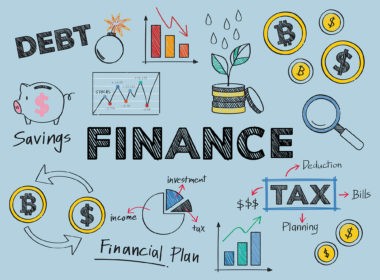Choosing a new career path can be overwhelming, but if you’re considering a respiratory therapist program, you’re already on the right track. This program not only provides a stable and fulfilling career, but it also offers a clear pathway for those looking to pivot into the healthcare industry. In this article, we’ll dive into why this program is perfect for career changers, how it works, and what you can expect from the journey.
Making the Leap into Healthcare
Switching careers can feel like stepping into uncharted waters, especially if you’re transitioning into healthcare. A respiratory therapist program is a fantastic choice because it offers a structured, fast-paced education that prepares you to jump straight into a rewarding role. Many people are drawn to respiratory therapy because they can make a tangible difference in the lives of patients, often helping them breathe more comfortably.
For instance, my friend Sarah made a big shift from her corporate desk job to becoming a respiratory therapist. She had always wanted to work in healthcare but didn’t have the opportunity earlier in her life. After researching different options, she realized that respiratory therapy would allow her to blend her interest in medicine with a hands-on, patient-centered career. Now, she spends her days helping patients with breathing difficulties, and the change has completely reinvigorated her professional life.
What to Expect from the Respiratory Therapist Program
The respiratory therapist program is designed to equip you with both theoretical knowledge and practical experience. You’ll dive into subjects like human anatomy, physiology, and pharmacology, all while gaining hands-on clinical experience working with real patients. This blend of learning methods ensures that by the time you graduate, you’ll be ready to jump into a hospital or clinic setting.
Classes are often a mix of lecture-based learning and hands-on practice. You’ll spend time in labs, working on simulators, and eventually practice in a clinical environment under the guidance of experienced therapists. It’s a balance between academic study and real-world experience, making it perfect for someone who wants to get into the workforce quickly but still receive comprehensive training.
For those making a career change, one of the best parts about this program is how adaptable it is. Even if you’ve never worked in healthcare before, the curriculum is structured in a way that builds your knowledge from the ground up. This makes it accessible for career changers without prior medical experience.
Balancing Work, Life, and Studies
One common concern for career changers is how to balance everything: work, life, and school. The good news is that many respiratory therapist program are designed with flexibility in mind. Whether you’re working full-time, part-time, or managing family responsibilities, you can often find a program schedule that fits your lifestyle.
For example, Sarah worked part-time while attending classes. The program offered evening courses and weekend clinical rotations, which allowed her to maintain a job while completing her studies. This flexibility is crucial for anyone juggling multiple commitments.
Additionally, many schools now offer hybrid learning options, where some of the coursework can be completed online. This is especially helpful for career changers who might need to fit their studies around an existing job or family responsibilities.
Career Opportunities After Graduation
The demand for respiratory therapists is on the rise, and job prospects are bright. Once you complete your respiratory therapist program, you’ll be eligible to work in various healthcare settings, including hospitals, clinics, nursing homes, and rehabilitation centers. There’s a high demand for respiratory therapists, especially with the growing number of patients dealing with respiratory conditions such as asthma, COPD, and sleep apnea.
Not only does this field offer job security, but it also provides room for advancement.
You can specialize in areas like neonatal care, pulmonary rehabilitation, or critical care, depending on where your interests lie. The opportunities to grow within the profession are numerous, making it a dynamic and rewarding career.
Real-Life Success Stories
Many career changers have found success in this field. One example is John, who transitioned from being a personal trainer to a respiratory therapist. He always loved helping people stay healthy but wanted a career with more long-term stability and growth potential.
John shared that his experience working one-on-one with clients gave him a natural ease when dealing with patients in a clinical setting. The respiratory therapist program helped him channel his passion for health and fitness into a healthcare role, where he now assists patients with breathing issues. It’s stories like John’s that show how diverse the background of respiratory therapists can be.
Financial Benefits and Stability
Aside from personal satisfaction, there are financial benefits to pursuing a career in respiratory therapy. The median salary for respiratory therapists is competitive, especially for a role that requires less time in school compared to other healthcare professions like nursing or physical therapy. This makes it an attractive option for those who want to change careers without spending years in school or accumulating significant debt.
You can complete a respiratory therapist program in as little as two years, allowing you to enter the workforce quickly. This short turnaround time from education to employment is a huge advantage for those looking to switch careers without a prolonged financial strain.
Is the Respiratory Therapist Program Right for You?
If you’re considering switching to a career that offers both personal fulfillment and job stability, then the respiratory therapist program might be the perfect fit. It’s a fantastic option for those who want to make a difference in people’s lives while also gaining a secure, in-demand role in healthcare. And remember, you don’t need to have a background in healthcare to succeed in this program. Whether you’re coming from an unrelated field like marketing, education, or business, the respiratory therapist program provides a strong foundation that will prepare you for success.












